CMT's Next Women of Country is successfully revising the genre's gender narratives
"Women are the cornerstone of country music."
Leslie Fram, CMT's award-winning senior vice president of music strategy, stated this in January 2013 upon announcing the music network and country lifestyle brand's Next Women of Country campaign. This summer, 16 members of current and previous years' Next Women of Country classes performed in songwriting rounds at sold-out events at Nashville's City Winery.
In the 3,500-plus days that have elapsed since the program's birth it has established a "safe space" for cultivating and mentoring country music's ever-growing list of female artists as the genre resets and revises itself for its next century.
Somewhere between Mother Maybelle Carter and Kacey Musgraves, country music venerated then deemphasized women's importance in the genre. This bizarre trend dovetailed with the consolidation of mainstream radio, a sustained climb in country music's sales and tour revenue, the explosion of music's digital marketplace, an increasing global footprint for social media and COVID-19.
Women's roles in these moments waxed, then – for many, problematically – waned.
Notably, the 2015 "Tomatogate" controversy, in which radio consultant Keith Hill drew an analogy with the composition of a salad, triggered an alarm.
"If you want to make ratings in country radio, take females out," Hill said in comments made to Country Radio Aircheck. "The reason is mainstream country radio generates more quarter hours from female listeners at the rate of 70 to 75% and women like male artists. I play great female records, and we've got some right now; they're just not the lettuce in our salad. The lettuce is Luke Bryan and Blake Shelton, Keith Urban and artists like that. The tomatoes of our salad are the females."
This notion pales against country music's once well-established, and lucrative, wisdom.
But it's also the concept that Next Women of Country is pushing back against, with notable results.
"Women have been some of the most important pioneers of the format," Fram noted In a 2015 Tennessean article. "Look at the brilliant songs by people like Dolly Parton and Loretta Lynn. Imagine squashing every young girl's dream. Imagine if a young Taylor Swift was told, 'Give it up. You're not going to be played on radio.' Now, she is the biggest star in the world."
To wit, between 1970-1979, Billboard's Hot Country Songs chart saw Lynn Anderson, Jessi Colter, Janie Fricke, Crystal Gayle, Emmylou Harris, Loretta Lynn, Barbara Mandrell, Anne Murray, Marie Osmond, Dolly Parton, Linda Ronstadt Margo Smith, Sammi Smith, Tanya Tucker, Dottie West and Tammy Wynette achieving chart-topping success.
Comparatively, 2022's Next Women of Country showcase performers Tenille Arts, Renee Blair, Laci Kaye Booth, Chapel Hart, Callista Clark, Julia Cole, Ashland Craft, Hannah Dasher, Madeline Edwards, Harper Grae, Camille Parker, Jenna Paulette, Reyna Roberts, Lily Rose, Brittney Spencer and Morgan Wade represent roughly 20% of the talent that CMT's program has spotlighted in the past decade. And while the jury is still out on whether they will achieve the success of the bumper crop of superstars from five decades prior, they are all surging at varying levels of undeniable acclaim.
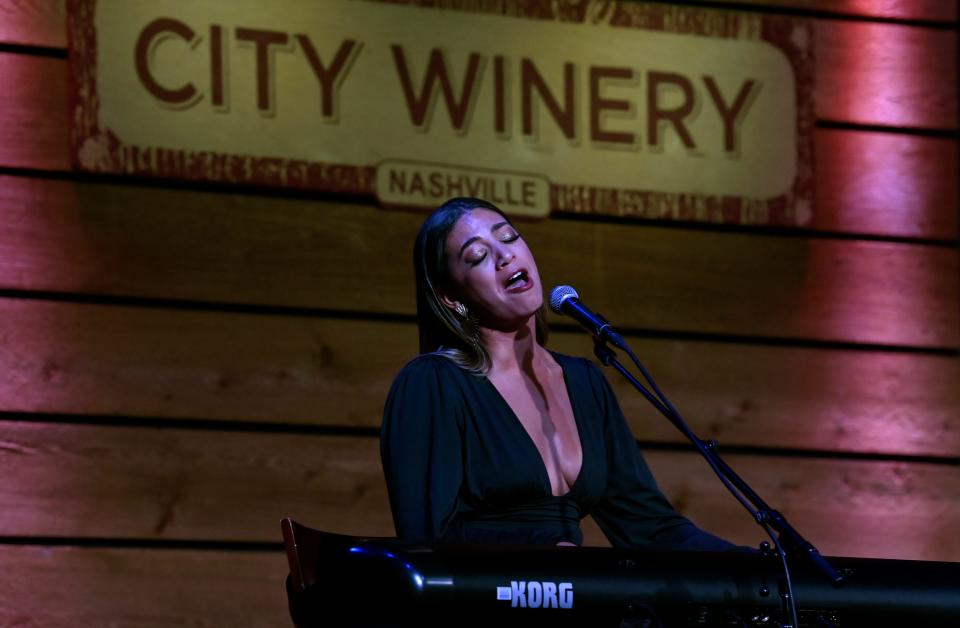
Madeline Edwards, a 2022 class member, has emerged – alongside other Next Women of Country class members of the past three years, including Craft, Rose, Spencer and Wade – as touring favorites for well-established country acts. In Edwards' case, she's spent a significant portion of the year as the tour opener for Chris Stapleton. She's following that by releasing a debut album to close the year.
Edwards as an African-American female artist following in the footsteps of Spencer, Roberts, Sacha, Tiera and Mickey Guyton in being highlighted by the program has a unique perspective on what it means to her career and its legacy in country music's changing historical narrative.
"This program automatically makes you a part of history," Edwards says. "It has already achieved so much and will continue to set a standard. If a 20-year-old girl sees me [onstage playing a show right now] and they then research me and see that I was in the same program as Kacey Musgraves – and both our careers have trajectories attached to them – it offers a beacon of hope that moves the needle, too."
With hair teased to the heavens and wearing a trademark polyester bell-bottomed pantsuit, Aug. 31 showcase performer Hannah Dasher is the ideal person to speak about what CMT's Next Women of Country program means to country music re-establishing itself and it's traditions in regards to women and sustainable careers.
"You don't go to a seminary without knowing your Bible, so you can't play country music without knowing your history," she jokes. "Next Women of Country expands the tree of country music by remembering its roots."
Like many, she grew up as a frequent CMT viewer and was "tickled" to be included in the program's 2020 class. None other than country icon Tanya Tucker informed her of the honor.
"I almost cried," Dasher says, still emotional over the memory. "Tanya's one of the girls who could stand up next to the boys [in country music], so to have her offer me a boost was huge."
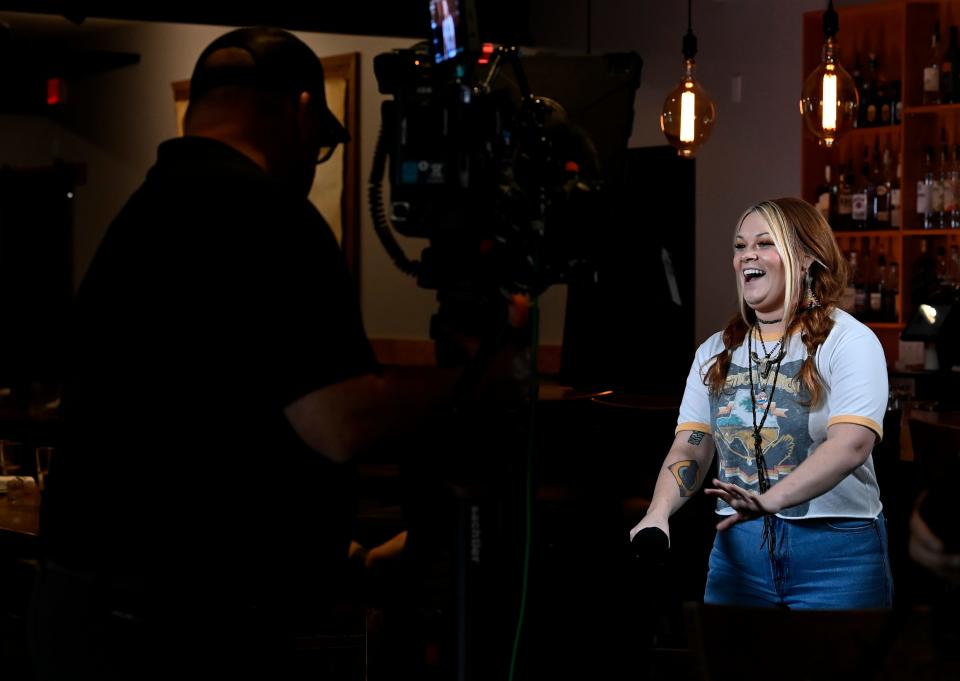
The past half decade's Billboard charts and recent Academy of Country Music, Country Music Association, and Grammy award classes will show that the work that CMT's Next Women of Country alums are achieving is notable.
Between Lauren Alaina, Kelsea Ballerini, Gabby Barrett, Brandy Clark, Lindsay Ell, Ashley McBryde, Maren Morris, Kacey Musgraves, Carly Pearce and Lainey Wilson alone, the Next Women of Country program can count the following successes:
21 No. 1 Billboard singles on country radio.
22 Academy of Country Music Awards.
18 Country Music Association Awards.
Seven Grammy Awards.
Two members of the Grand Ole Opry (Alaina and Pearce).
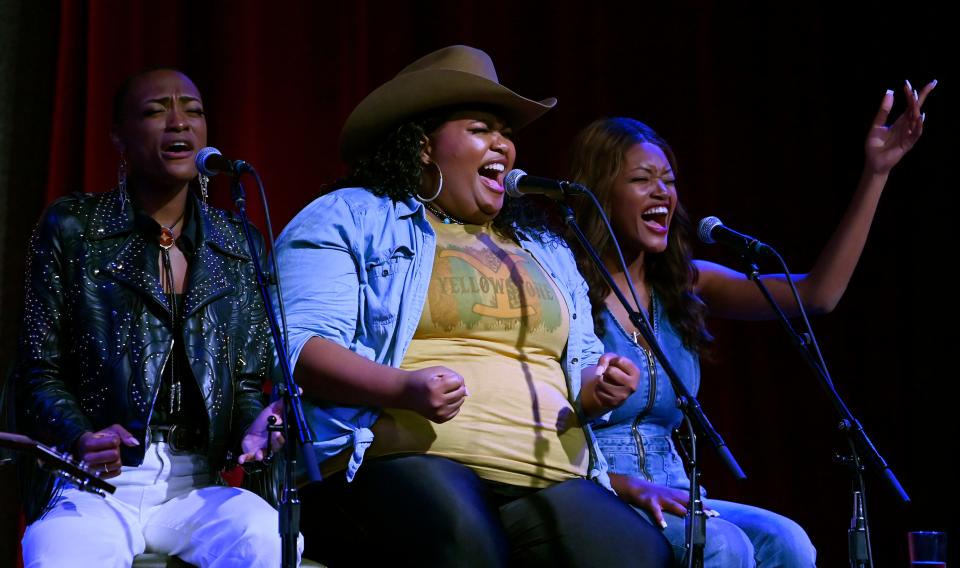
Chapel Hart's Danica Hart links the platform Next Women of Country offers a rising female artist to the group's recent success.
"It absolutely helps you slowly work yourself up the food chain that is the 'family' of country music," she says.
It's one of many plaudits for the Poplarville, Mississippi, act that has followed being named CMT Next Women of Country artists in 2021.Since receiving the honor, they have been featured on "America's Got Talent," debuted at the Grand Ole Opry, and now have their name routinely linked with artists such as Darius Rucker, Jon Pardi and more.
For a performer like Renee Blair, being a 2020 Next Woman of Country after having spent 15 years in Nashville adds a fascinating spin to the honor. Foremost, she highlights names like Parton and Shania Twain as influences on her work upon arriving in Nashville in 2007.
Then she makes a careful point, couched between the fact that August 2019 research showed that female artists accounted for 21% of the songs on Billboard's Country Airplay Chart, and that between May 2019 and this month, female artists account for 21% of No. 1 singles on the chart.
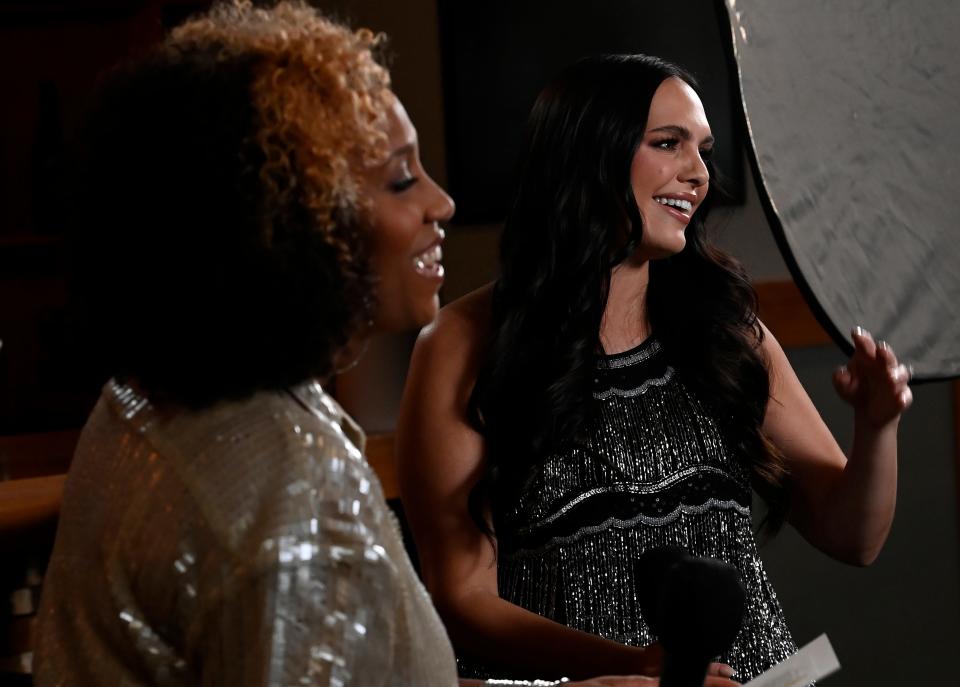
"In the last few years, I've felt and seen a change," she says. "The hairs on my body stand up when I think about how many people are both listening and paying attention to female artists right now. Between social media allowing for female artists to be more discoverable and fan accessible, plus women who are the gatekeepers in charge of DSP providers like Amazon, Pandora and Spotify amplifying the reach of women in country music, it's changing."
Noting that this is a "pivotal inflection point" in the future of the music industry, Blair – who currently has her first song, as a writer, on country radio with Hardy and Lainey Wilson's collaboration "Wait in the Truck" – notes that pre-and post-COVID-19 quarantine's country music industry are "two different worlds" where a "beautiful and special" ethos guided by "equal play" has taken hold.
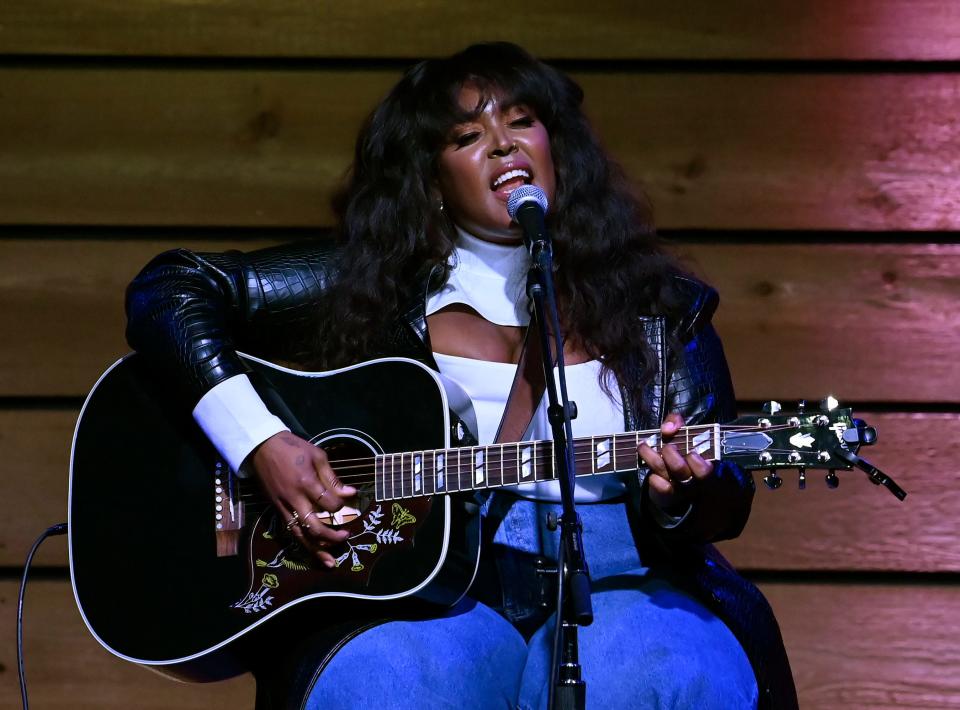
Dasher, while noting that the constant grind of content making and touring that she and all of CMT's current crop of Next Women of Country are experiencing is both "a juggling act" and "a blessing and a benefit," hollers when reminded that it has led to moments like performing in front of a sold-out crowd at City Winery.
"This moment for women in country music hasn't been heard or seen in a long time," she says. "We never got to see a Carrie Underwood, Miranda Lambert and Reba McEntire concert. We always had some Eric Church, Hank Jr., Alan Jackson, Skynyrd, or something thrown in there. And that's all great. I love them. But women – just women – getting this kind of support is really badass."
This article originally appeared on Nashville Tennessean: CMT's Next Women of Country helps revise the genre's gender narratives
Solve the daily Crossword

